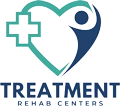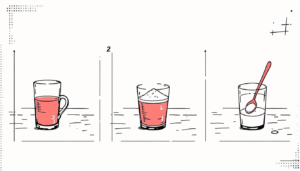Driving under the influence (DUI) is a big deal with big consequences. Many people facing drugged or drunk driving charges wonder: “Can I go to rehab instead of jail for DUI charges?
The short answer? Yes—sometimes you can go to rehab instead of jail for a DUI. But it depends on your jurisdiction, your case, and your willingness to get treatment.
The criminal justice system offers alternatives like rehab for DUI offenders to address both the legal and underlying substance abuse issues. Let’s dive in to help you understand your options.
Keep reading our guide from TreatmentRehabCenters.org to get all the info (and options) needed to get answers and a path to freedom rather than jail.
Rehab Over Jail for DUI: A Path to Recovery and Freedom
DUI and Drug-Related Offenses and Their Consequences
What are DUI Charges and Their Impact?
A DUI charge is when someone is caught driving while under the influence of alcohol or drugs. The penalties for a DUI conviction vary but can include big fines, license suspension, community service, education programs, and jail time. But beyond the legal consequences, a DUI can affect your job, relationship, and overall life.
While these penalties are meant to deter bad behavior they don’t address the underlying drug and alcohol abuse. Jail time punishes the offender but doesn’t give them the tools to achieve long-term sobriety. So some jurisdictions offer alternatives like treatment programs to help the offender recover and reduce the risk of reoffending.
Alternatives to Jail for DUI
If you’ve been charged with a DUI you may have access to:
- Rehabilitation Programs: Inpatient or outpatient treatment programs.
- Probation: Supervised freedom with conditions like drug testing and counseling.
- Community Service: Unpaid labor to community projects as a form of restitution.
- Drug Court Program: Specialized programs that combine legal supervision with addiction treatment, a structured environment to support recovery.
These alternatives aren’t guaranteed; eligibility depends on your criminal history, the severity of the offense, and if you endangered others.
Why Choose Rehab Over Jail?

Why Rehab is More Effective
Alcohol and drug rehab provides a structured environment where individuals can address the underlying causes of their addiction. Jail often makes people feel ashamed and isolated, rehab offers:
- Full Treatment: Therapy, education, and support groups to recover.
- A Safe Environment: Support from professionals and peers.
- Skills for Sobriety: Tools to handle stress, avoid triggers, and live a healthy lifestyle.
By focusing on recovery rehab helps people get back into society as productive substance-free members.
Can I Go to Rehab Instead of Jail for DUI: The Role of Drug Courts
Drug courts know that addiction is often the root of criminal behavior especially in non-violent drug-related offenses. These programs offer non-violent offenders the opportunity to get treatment instead of incarceration.
Participants must follow strict rules, attend counseling sessions, pass drug tests, and meet with a judge regularly. When completed drug court programs can result in reduced charges or even case dismissal.
Aftercare Following Treatment
Get addiction treatment to avoid jail and increase your chances of recovery. Recovery doesn’t end when the rehab program is over.
Aftercare services and recovery resources like support groups, 12-step meetings, and individual counseling help you stay on track. These services provide ongoing support, reduce the risk of relapse, and reinforce the skills learned in treatment.
How to Choose Treatment

Choosing the Right Rehab
Not all rehabs are created equal so you need to find a rehab that addresses drug and alcohol addiction. Look for facilities that are accredited and licensed, these credentials mean high standards of care. Consider the following when choosing a program:
- Program Length: 30-day programs to long-term residential treatment.
- Services: Make sure the program addresses co-occurring mental health if needed.
- Location: Do you want to be close to home or far away for a fresh start?
What to Expect
Drug addiction treatment usually starts with medical detox where professionals will help you manage withdrawal symptoms. Once detox is complete you may move on to:
- Residential Treatment: 24/7 care in a structured environment.
- Partial Hospitalization: Daytime treatment with the option to go home at night.
- Intensive Outpatient Programs: Flexible scheduling to balance treatment with work or family obligations.
These programs use evidence-based approaches like cognitive behavioral therapy (CBT), motivational interviewing, and trauma-focused therapy to address addiction and related issues.
Why You Need a Lawyer
The legal system can be tough to navigate especially when you’re facing drug-related charges and the possibility of jail time. An experienced attorney will advocate for your eligibility for rehab or dual diagnosis treatment, present your case to the court, and explain your rights and options.
They can increase your chances of getting into a treatment program instead of jail time.
Treatment Instead of Jail

Who is Eligible for Treatment Over Incarceration?
Eligibility for treatment instead of jail depends on the following:
- Substance Use Disorder Diagnosis: Courts require proof of addiction for non-violent drug offenses.
- Non-Violent Offense: Treatment is for non-violent offenders.
- Jurisdictional Policies: Some states have more lenient diversion programs than others.
- Criminal History: First-time offenders are more likely to qualify than repeat offenders.
Assessment and Evaluation
Courts do assessments to determine eligibility for alternative sentencing. These assessments may include:
- Questions about your substance use and mental health.
- Review of your criminal record.
- Input from family members or prior treatment providers.
Presenting Your Case
Your lawyer will be key in showing your commitment to recovery. By showing you’re willing to address the underlying causes of your behavior and presenting a solid treatment plan they can get the court to approve treatment instead of jail.
Your Guide to Choosing Rehab Instead of Jail for DUI
The Program
Medical Detox and Residential Treatment
Drug abuse is usually the first issue addressed in rehab, detox ensures you safely get the substances out of your body. Residential treatment follows where you get 24/7 care in a structured environment that’s focused on recovery.
Outpatient Options
If you can’t commit to full time residential treatment, outpatient programs like Partial Hospitalization Programs (PHPs) or Intensive Outpatient Programs (IOPs) are an option. These programs offer similar therapy but allow you to maintain some daily responsibilities.
Underlying Issues
Alcohol abuse often stems from underlying issues like trauma, mental health disorders or chronic stress. Addressing these issues is key to long term recovery.
Rehab as a Holistic Solution
Unlike incarceration which just isolates offenders, rehab provides tools and resources to build a healthier future. This holistic approach helps personal growth and reduces reoffending.
Avoiding Jail Time for DUI

Choosing the Right Rehab
When choosing a treatment center prioritize those with proper accreditation and a good track record of success especially in drug-related crime cases. Research reviews, ask about services, and make sure the program fits your needs and goals.
Life After Treatment
Completing a court-ordered rehab program is just the start of your recovery journey. Stay connected with aftercare resources, be transparent with your support network, and prioritize self-care to maintain your progress.
Financials
Financial Assistance
Rehab can be expensive but financial aid is available. Research scholarships, sliding scale fees, and government programs to reduce costs. Some insurance plans cover addiction treatment.
Viewing Rehab as an Investment
While the upfront cost of rehab may seem steep, consider it an investment in yourself. Sobriety can open doors to new opportunities, and improve relationships and overall well-being.
Choosing to Get Help
If you or someone you know is addicted, get help. Common signs are increased tolerance, withdrawal symptoms, and loss of control over substance use. Early intervention can prevent legal trouble and set you up for recovery.
Rehab is a Path to a Better Life
Choosing rehab over jail isn’t just about avoiding punishment – it’s about changing your life. With the right support, resources, and determination you can overcome addiction and build a better future.
Keeping Records and Being Transparent

Documenting progress is a big part of rehab, especially in court-ordered rehab. Keeping a record of your journey allows you to track milestones, celebrate successes, and address any issues that come up.
This documentation is tangible proof of your commitment to recovery and rehabilitation which is especially helpful when showing compliance to the court. By regularly updating your progress you can see patterns in your behavior, make adjustments, and stay motivated on your journey to long-term sobriety.
Communication with the Court and Treatment Team
Transparent communication is key in rehab especially when it involves the court and your treatment team. Being open and honest with your treatment providers about your progress, issues, and concerns helps build trust and gets you the right support.
This transparency also extends to the court; by providing regular updates and proof of progress, you can show the court you are committed to rehab. This can help reduce a jail sentence or even dismiss charges as it shows the court you are taking proactive steps toward recovery.
Being Accountable and Committed to Rehab
Being accountable and committed to rehab when you seek addiction treatment requires proactivity in your recovery journey. Regularly reviewing your documents, setting realistic goals, and working hard to achieve them are part of this process. Accountability keeps you motivated and gives you a framework to overcome obstacles.
By showing you want to change and overcome addiction you not only increase your chances of long-term sobriety but also change the court’s perception of your commitment to rehabilitation.
Up To 100% of Rehab Costs Covered By Insurance
Rehab over Jail is a Solid Choice for a Brighter Future
Self-care is key to making the most of rehab. Doing activities that promote physical, emotional, and mental well-being – exercise, meditation, or creative pursuits – can reduce stress, improve mood, and boost motivation.
Setting achievable goals is just as important.
By breaking down your goals into smaller tasks, you can celebrate small wins along the way, reinforcing your progress and motivating you. Self-care and setting realistic goals will make your rehab experience better and support your long-term sobriety.
Remember that we are here for you (and your loved ones). Please do not hesitate to reach out to our expert staff at TreatmentRehabCenters.org for a confidential discussion of options now!











